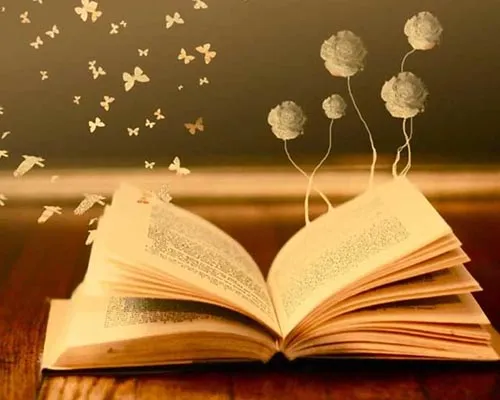What’s so great about reading in a technologically advanced world anyway?
I cannot, for the life of me, pinpoint the moment I fell in love with books and subsequently with stories.
It could have been that day in pre-primary school when I was the first person in my class to be able to read. I carried that achievement around with me everywhere. I was barely able to climb up a jungle gym nor was I particularly good at running without my face having a chance encounter with the ground ( a skill which, sadly, has not improved much during my twenty-something years on this planet) but I was able to read.
Or it could have been when I moved to a new school in Grade 4. When I was shy, awkward and often on the receiving end of many interestingly crafted bullying tactics and spent most of my breaks, locked away in the library reading every single Sweet Valley High or Mary-Kate & Ashley book that the little library in my school stocked. Cassandra Clare, a young adult author, wrote in one” of her novels, “It was books that made me feel that perhaps I was not completely alone” and that was true for the scared and shy ten-year-old. I was okay because I had “book friends” and stories of others going through what I was going through. It let me be myself, and be okay on my own until I eventually found the courage to actually make friends.
Or it could have been…
Or it could have been…
Or it could have been…. There are many moments like these in my life. Moments where reading and getting lost in the worlds created by words of people who seemed to understand me, or what I needed, although I had never met them and never would. Reading was, and still is, my first love. I didn’t start reading because a teacher mentioned it would be good for me (which it was), nor did I start reading in order to improve my English marks in school (which it did). I fell in love with it because it offers something very real and very different from any other forms of entertainment.
But with the modern age and the technological revolution seeping into every aspect of one’s day to day life, less and less children are reading – even those who classically would fit the mould of the bookworm. So we have to ask, why is that? Why are children with similar experiences to mine, similar love for stories, similar cravings for escapism not picking up a book?
The clear and most overwhelming problem is that children have access to so many forms of instant gratification nowadays, that the energy and time investment required to sit down and read seems completely barbaric when compared to tiktok videos, youtube shorts or video games. And although it could be argued that children do learn in some ways due to exposure to these things ( I am not denying that I solely learned how to iron by watching youtube videos upon leaving home) children are losing something by avoiding reading. Children and teenagers have either lost, or are losing, the ability to just be still. To be calm and stay in their own head and keep their own company. Reading offers the brain a place to be quiet, reflective and to some extent, meditative. Screens are busy. They are loud, bright and leave very little space for a child to “fill in the blanks” for themselves and develop that sense of creativity. Moreover, reading for pleasure has been linked to numerous fantastic qualities in children and teenagers: academic success, increased concentration, increased memory and knowledge, to name a few. However, one which is not often known is that there seems to be a link between reading for fun and the development of a child’s empathy. Studies have shown that reading helps children understand both their own feelings and the feelings of others – often giving names to those emotions they experience without being able to categorize yet. It offers them a window into how different people think and experience the world. Malorie Blackman probably put it best when she said, “Reading is an exercise in empathy; an exercise in walking in someone else’s shoes for a while.”
Reading has many other benefits ranging from directly effecting the scores on standardized tests to understanding very complex political situations (thanks George Orwell!). It positions children, and us as adults, in such a way to make sense of the world -using narratives we understand to make sense of all that we don’t know. And the wonderful thing is that there are so, so many options available to children and teenagers nowadays with such vast representation that there is almost certainly a book about anything a person could want to read about.
I have worked as an English tutor for over three years now, and I have never pushed the “readers agenda” more than I do now. I love reading, I have watched children fall in love with reading – accessing parts of their creativity that had been locked away and straining to get out – and I have seen the impact of an adolescent reading someone put into words those isolating feelings teenagers experience and how comforted they are by not being “alone”.
Falling in love with reading and stories has been one of the greatest adventures of my life – one that I fully intend always to try help others see and experience.


